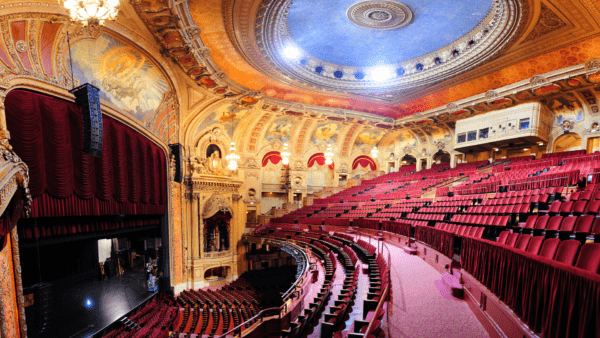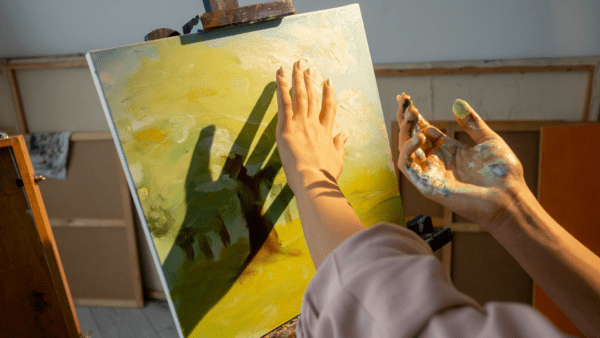
The field of arts, culture, and entertainment encompasses a wide range of creative and cultural activities that play a significant role in shaping societies and providing enjoyment and enrichment to individuals.
Education
Varies significantly depending on the specific career path you choose. Some roles may require formal education, while others prioritize practical experience and talent. In many cases, internships, apprenticeships, and networking can be just as important as formal education.
To Consider
- Success in this field can vary widely, from fame and recognition to the satisfaction of making a meaningful impact on society’s cultural fabric.
- This is a highly competitive field, and success often depends on a combination of talent, dedication, and persistence. Building a strong portfolio, networking with industry professionals, and gaining practical experience can open doors to various career opportunities within this field.
Examples of Professional Areas (non-exhaustive)
Examples of Professions (non-exhaustive)
Common soft skills (non-exhaustive)
Soft skills are essential in the arts, culture, and entertainment field as they often complement the technical and artistic aspects of various professions. Here are some common soft skills that are highly valued in this field (this list is non-exhaustive; note that all skills are not necessarily needed).
Adaptability: The arts and entertainment industry can be unpredictable, so adaptability is essential. Artists and professionals must adjust to changing circumstances and remain open to new ideas and approaches.
Adherence to Ethical Standards: Many professions in this field involve ethical considerations, such as respecting cultural heritage or copyright laws. Adhering to ethical standards is essential for maintaining trust and integrity.
Attention to Detail: Paying attention to detail is crucial for maintaining quality in artistic work, whether it’s in the creation of fine art or the execution of a live performance.
Collaboration: Many creative projects require teamwork. Collaborative skills involve working effectively with others, sharing ideas, and contributing to a collective vision.
Communication: Effective communication is crucial for conveying artistic ideas, collaborating with team members, and connecting with audiences. It includes verbal and written communication skills.
Creativity: Creativity is the ability to generate novel ideas, concepts, and artistic expressions. It’s fundamental in almost every role in the arts and entertainment field as it drives innovation and originality.
Cultural Sensitivity: In the diverse world of arts and culture, cultural sensitivity involves being aware of and respecting different cultural norms, traditions, and perspectives.
Emotional Intelligence: Emotional intelligence involves understanding and managing one’s emotions and understanding the emotions of others. It’s crucial for building rapport with colleagues, artists, and audiences.
Empathy: Empathy involves understanding and connecting with the emotions and experiences of others. It’s important for creating art that resonates with audiences and for effective collaboration.
Feedback Receptivity: Being open to constructive criticism and feedback is crucial for personal and professional growth in the arts. It allows individuals to improve their work and skills.
Financial Literacy: Some roles, particularly in arts administration and cultural entrepreneurship, require financial literacy to manage budgets, secure funding, and make sound financial decisions.
Marketing and Promotion: Understanding marketing and promotional techniques is essential for artists and professionals looking to promote their work or cultural events effectively.
Negotiation: Negotiation skills are valuable for securing contracts, deals, and partnerships, such as when negotiating contracts for artists or collaborations with sponsors.
Networking: Building and maintaining a network of contacts within the industry is vital for career advancement. Networking skills help individuals connect with peers, mentors, and potential clients or employers.
Open-Mindedness: Open-mindedness allows artists and professionals to be receptive to new ideas and perspectives, fostering innovation and artistic growth.
Problem-Solving: Problem-solving skills help artists and professionals overcome artistic challenges, technical difficulties, and logistical issues that may arise during the production of creative works.
Public Speaking: Public speaking skills are particularly important for performers, presenters, and those who engage with audiences. Effective public speaking can enhance the impact of artistic expressions.
Resilience: Resilience is the ability to bounce back from setbacks and rejection, which are common in the arts and entertainment field. It helps individuals persevere and maintain motivation.
Self-Motivation: Self-motivation is the drive to pursue artistic projects and career goals independently. It helps individuals stay focused and committed to their work.
Time Management: Time management is essential for meeting deadlines, coordinating events, and ensuring that artistic projects progress efficiently.












